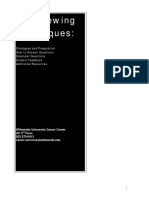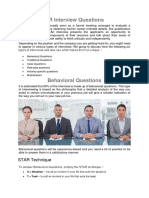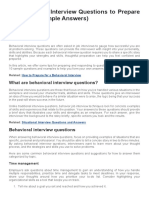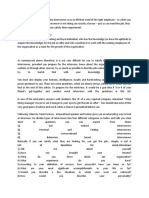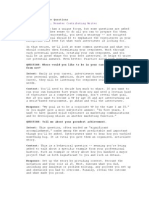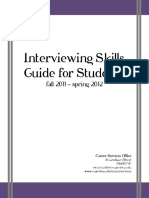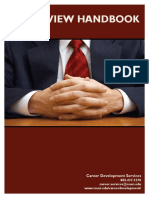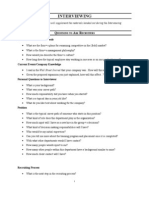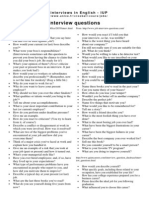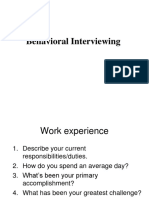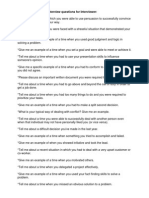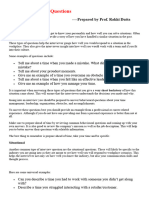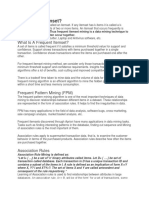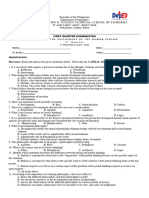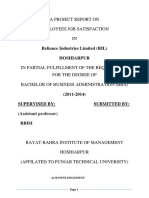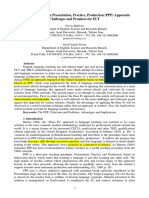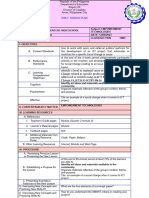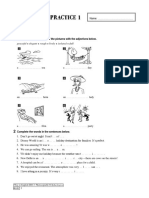0% found this document useful (0 votes)
54 views5 pagesInterview Questions
The document provides guidance on interview preparation, focusing on different interview styles such as behavioral, open-ended, and problem-solving interviews. It emphasizes the importance of using the STAR method to answer behavioral questions effectively and lists various sample questions for each interview type. Additionally, it advises candidates to know their experiences and how they align with the company's needs to present themselves positively during interviews.
Uploaded by
Rahul RajCopyright
© © All Rights Reserved
We take content rights seriously. If you suspect this is your content, claim it here.
Available Formats
Download as PDF, TXT or read online on Scribd
0% found this document useful (0 votes)
54 views5 pagesInterview Questions
The document provides guidance on interview preparation, focusing on different interview styles such as behavioral, open-ended, and problem-solving interviews. It emphasizes the importance of using the STAR method to answer behavioral questions effectively and lists various sample questions for each interview type. Additionally, it advises candidates to know their experiences and how they align with the company's needs to present themselves positively during interviews.
Uploaded by
Rahul RajCopyright
© © All Rights Reserved
We take content rights seriously. If you suspect this is your content, claim it here.
Available Formats
Download as PDF, TXT or read online on Scribd
/ 5


